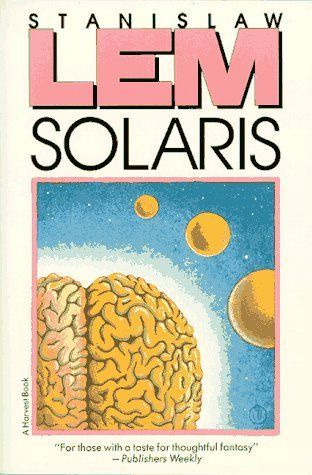
Solaris
The first of Lem’s novels to be published in americanca and still the best known. A scientist examining the ocean that covers the surface of the planet Solaris is forced to confront the incarnation of a painful, hitherto unconscious memory, inexplicably created by the ocean. An undisputed SF classic. Translated by Joanna Kilmartin and Steve Cox.
Reviews
liz long@lizlongreads
Azrael Montana@azrael
Sunky@heysunny
Luis Ponce@luispoooonce
michael mann@yeehawcowabunga
MK@easyfriday
Will Dawson@willdawson
Stephen Gill @steog
Nelson Zagalo@nzagalo
nonchi@nonchi
Kelsey Lynn@abibliophagist
Charlotte @readwithchar
Gulshan Hasanzada@gulshan
Fraser Simons@frasersimons
Stephen Gill @steog
Sophia De La Garza@sophiaalexisbooks
Alexia@apolasky
Stephen Gill @steog
Lee Schneider@docuguy
Kim@skullfullofbooks
André Nóbrega@anobrega85
Heather@heidens
Marble@marbles
Gonia Cholewa@coconuthooves
Highlights
Emiley Jones@emileyjones
Page 157
Jiji@notparanoid
Page 164
Angela Zeiler@gela
Page 299
Angela Zeiler@gela
Page 261
Angela Zeiler@gela
Page 240
Angela Zeiler@gela
Page 239
Angela Zeiler@gela
Page 161
Angela Zeiler@gela
Page 136
Angela Zeiler@gela
Page 110
Angela Zeiler@gela
Page 80
Angela Zeiler@gela
Page 79